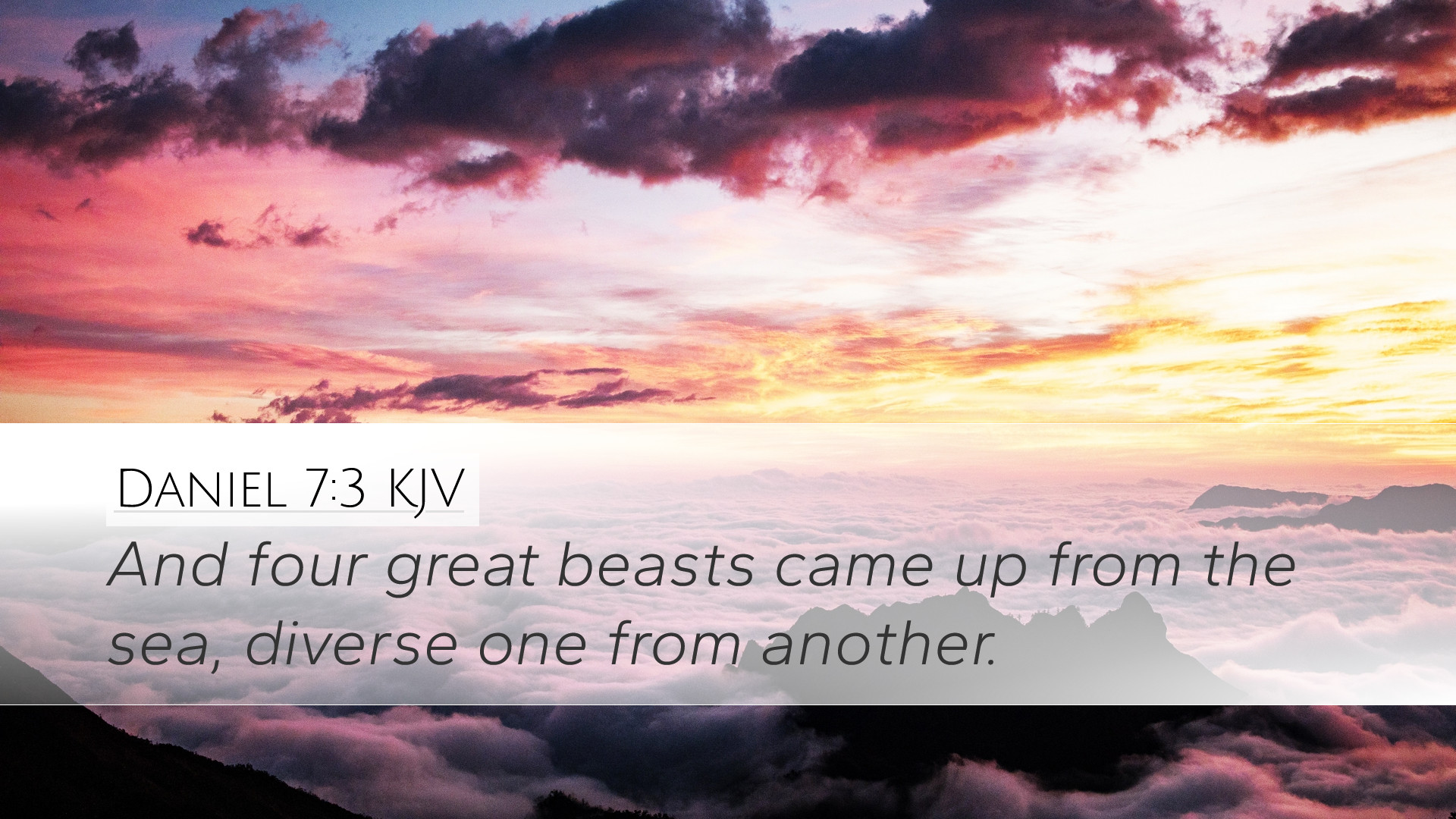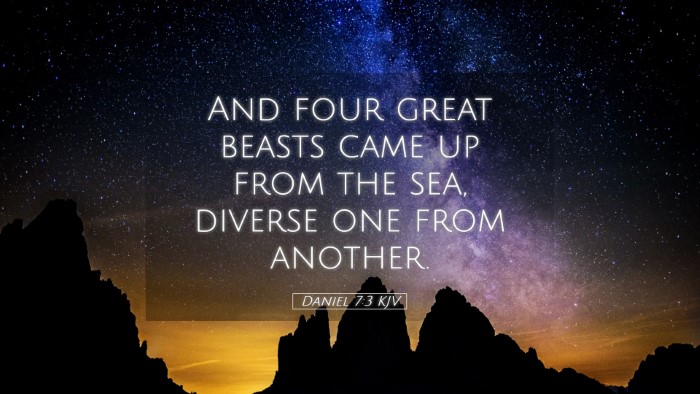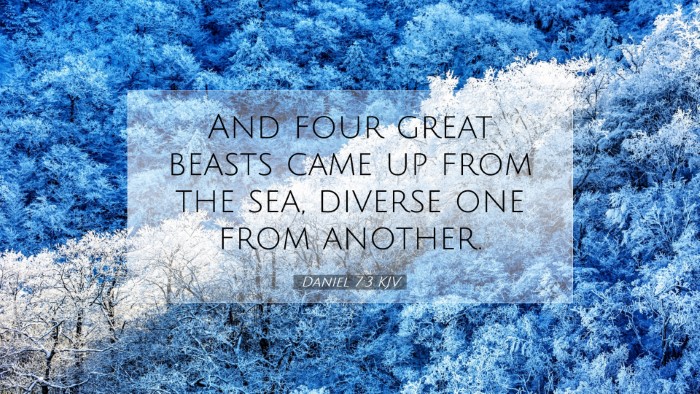Commentary on Daniel 7:3
Verse Selected: "And four great beasts came up from the sea, diverse one from another." (Daniel 7:3)
Introduction
Daniel 7:3 serves as a pivotal moment in the apocalyptic vision experienced by the prophet Daniel. Within this verse lies profound symbolism representing empires and their eventual rise and fall. Our exploration will draw from public domain commentaries, providing insights from eminent theologians such as Matthew Henry, Albert Barnes, and Adam Clarke.
Contextual Background
The seventh chapter of Daniel transitions into the realm of prophetic visions, contrasting the narratives that precede it. The four beasts seen by Daniel emerge from the tumultuous sea—a metaphor for chaos and tumultuous nations. Understanding the historical and prophetic context is essential for a meaningful interpretation.
Historical Relevance
The timing of this vision corresponds to a period of significant upheaval for the Jewish people. It reflects God's sovereignty over the world, particularly amidst the challenges the Israelites faced during Babylonian captivity.
Commentary Insights
Matthew Henry
Henry emphasizes that the sea symbolizes the nations and their turbulent states. The four beasts represent notable empires—specifically, Babylon, Medo-Persia, Greece, and Rome—each diverging in nature and conduct but united in their opposition to God's people. Henry remarks on the importance of these beasts being “diverse from one another,” highlighting that each empire carries unique characteristics and methods in their governance and oppression.
Albert Barnes
Barnes elaborates on the nature of the beasts as symbols of political power. The “great beasts” emerge from the sea, indicating that they are monstrous yet inevitable outcomes from chaotic political situations. Barnes notes that the diversity in their forms could signify differing methods of cruelty or governance, reflective of man’s inherent sinfulness and rebellious nature against God’s sovereignty. He stresses that these empires arise as a result of divine sovereignty allowing for human choice, even amidst the turmoil of sin.
Adam Clarke
Clarke seeks to explore the exegetical implications of the passage. He aligns the beasts with the historical trajectory of world empires and connects each beast’s characteristics with the sociopolitical realities of the time. Clarke posits that the beasts symbolize not just kingdoms but also ideologies that govern human behavior and morality. He reiterates that the seas from which they rise represent the unpredictable nature of human affairs, driven by both divine will and human agency.
Theological Implications
The emergence of the four beasts raises several theological questions about God’s providence and justice. Divine Sovereignty is a central theme throughout this chapter. Despite the apparent chaos represented by the seas, God remains sovereign and is orchestrating history towards His ultimate purpose. This theme of sovereignty provides a framework for understanding times of trial and tribulation in the believer’s life.
Lessons for Theology and Pastoral Ministry
- The Assurance of God’s Control: Believers can find comfort in the knowledge that, despite tumultuous earthly kingdoms, God remains in control. This is especially relevant for pastoral care during times of societal unrest.
- The Call to Righteousness: Each beast's portrayal serves as a reminder to uphold righteousness in the face of oppressive powers. Pastors and theologians are called to encourage believers to stand firm in their faith.
- The Hope of Redemption: The eventual downfall of these beasts reminds Christians of the ultimate victory of Christ over evil. This provides hope amidst despair and calls for a hopeful, enduring faith.
Conclusion
Daniel 7:3 is more than a simple depiction of four beasts; it encapsulates a divine narrative about the rise and fall of nations and the overarching kingdom of God. The combined insights from Henry, Barnes, and Clarke equip pastors, students, and theologians with a deeper understanding of how to interpret these visions in light of Scripture and contemporary relevance. As we engage with this text, let us remember the encouragement that God holds authority over history and our lives.


